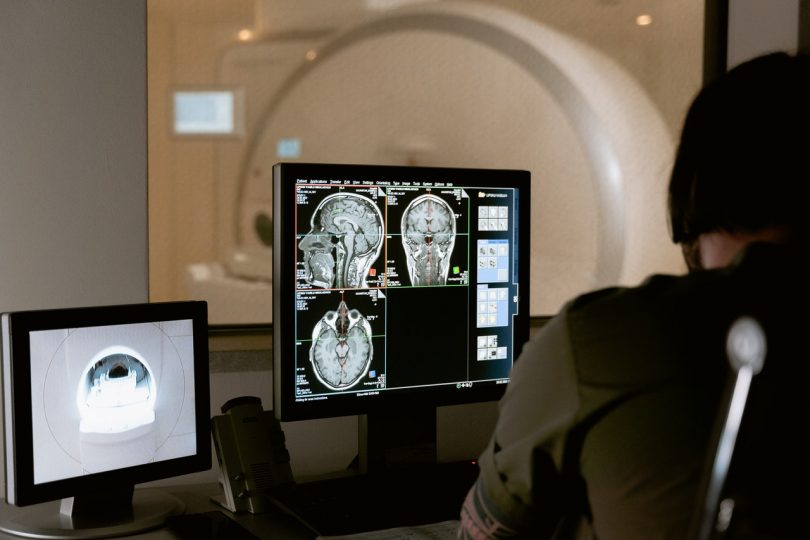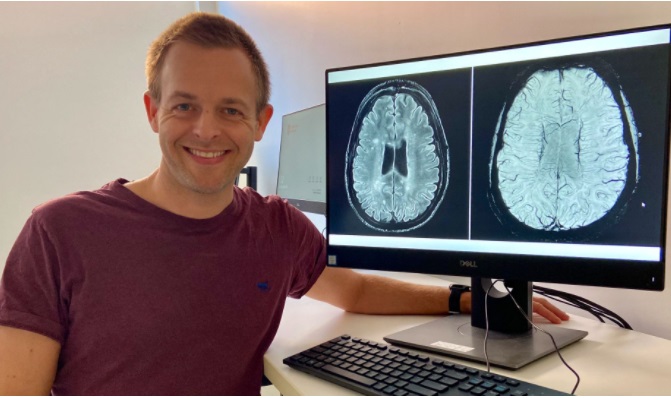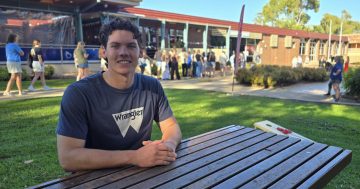
Men living in the Riverina aged 18 years and above who have had an MRI scan in the past six months and experienced distress during the scan are invited to take part in a Charles Sturt University study. Photo: Supplied.
Men who have experienced distress during a magnetic resonance imaging (MRI) scan are being asked to take part in a study.
Such has been the response to Charles Sturt University PhD candidate Johnathan Hewis’s initial study of female participants on the NSW Mid North Coast and NSW Central Coast, he is now expanding his parameters to include men aged 18 and above from the state’s southern region.
A lecturer in medical imaging at the Charles Sturt University School of Dentistry and Health Sciences in Port Macquarie, Mr Hewis said his overall objective is to increase understanding of MRI-related distress for health professionals and garner better support for patients who experience it.
“For a lot of people, MRI scans are a mundane diagnostic procedure, but for some the process is very challenging,” says Johnathan.

“I have found most participants often suffer in silence and the MRI practitioners may be completely unaware,” says Charles Sturt University PhD candidate Johnathan Hewis. Photo: Supplied.
“It can be dehumanising and physically, socially and emotionally isolating.
“Often patients have to remain still in a painful or uncomfortable position, and some are in terror due to the proximity of the scanner.”
Johnathan says most research indicates claustrophobia is the classic cause of distress with MRI scans, but what he and several small studies have found is the cause of distress is varied and multifaceted.
“Several of my participants have no issues with enclosed spaces at all – they are not claustrophobic,” he says.
Johnathan explains the triggers for distress were not just about the MRI scan itself, but the wider healthcare journey.
“There is an aspect of regionality that has emerged as a sub-theme in my research from earlier participants,” he says.
Johnathan says many of his participants had to travel away from home to have an MRI, some travelling to a metropolitan specialist centre for follow-up imaging and other appointments.
“This adds additional layers to their experience due to considerations such as the need to travel, being away from home and potentially loved ones, often with additional costs,” he says.
“All of these factors add to the content of their experience in MRI and, for many, these factors can contribute to distress.”
Johnathan says he has found that distress for study participants was a perceived existential threat “that sort of reaches a tipping point where the individual can no longer cope or self soothe and they reach a stage of panic where they perceive imminent danger”.
“I have found most participants often suffer in silence and the MRI practitioners may be completely unaware,” he says.
Johnathan says his preliminary findings reinforce the need for more patient information, communication and support throughout the imaging journey.
“As MRI practitioners, we need to be empathic of the MRI process, provide greater interpersonal support at all stages of the process, and develop a greater understanding of the variety and experience of distress,” he says.
Men living in the Riverina aged 18 years and above who have had an MRI scan in the past six months and experienced distress during the scan are invited to take part in the PhD study.
Participants will be asked to take part in a 45-90 minute video interview conducted by Johnathan.
After the interview, participants will be asked if they would like to review the research findings and will be posted or emailed the initial written summary.
All responses will be treated confidentially, he says.
Questions about the study can be directed to Johnathan Hewis on (02) 6582 9346, or by email at [email protected].















